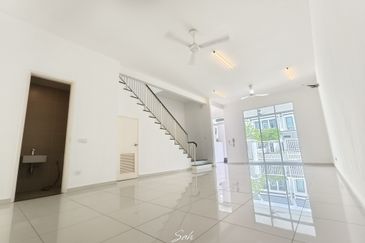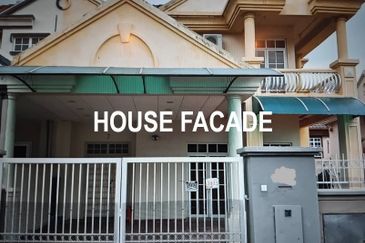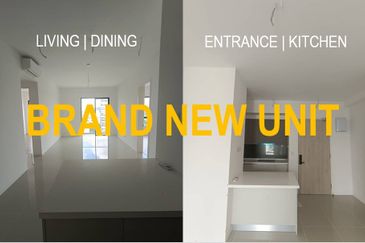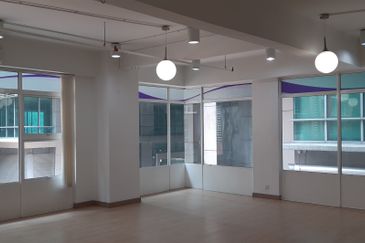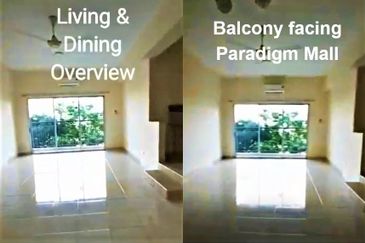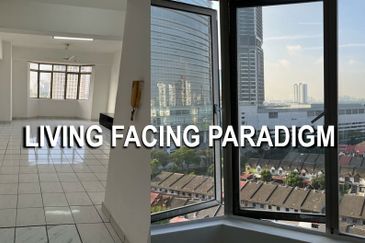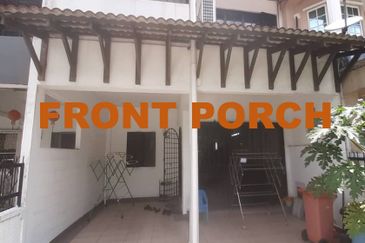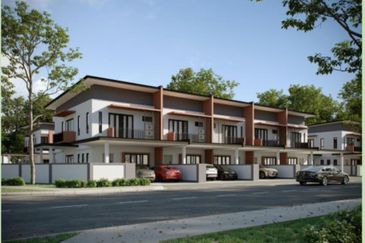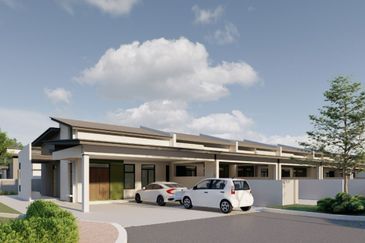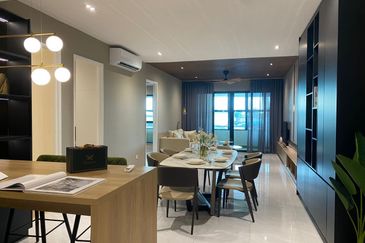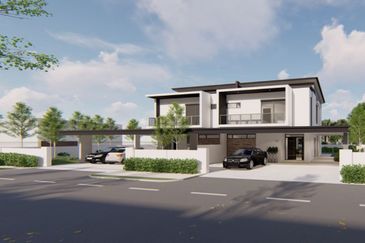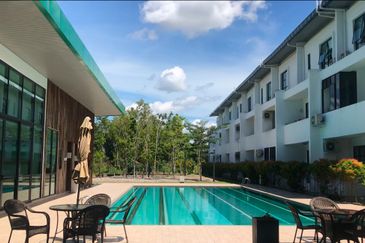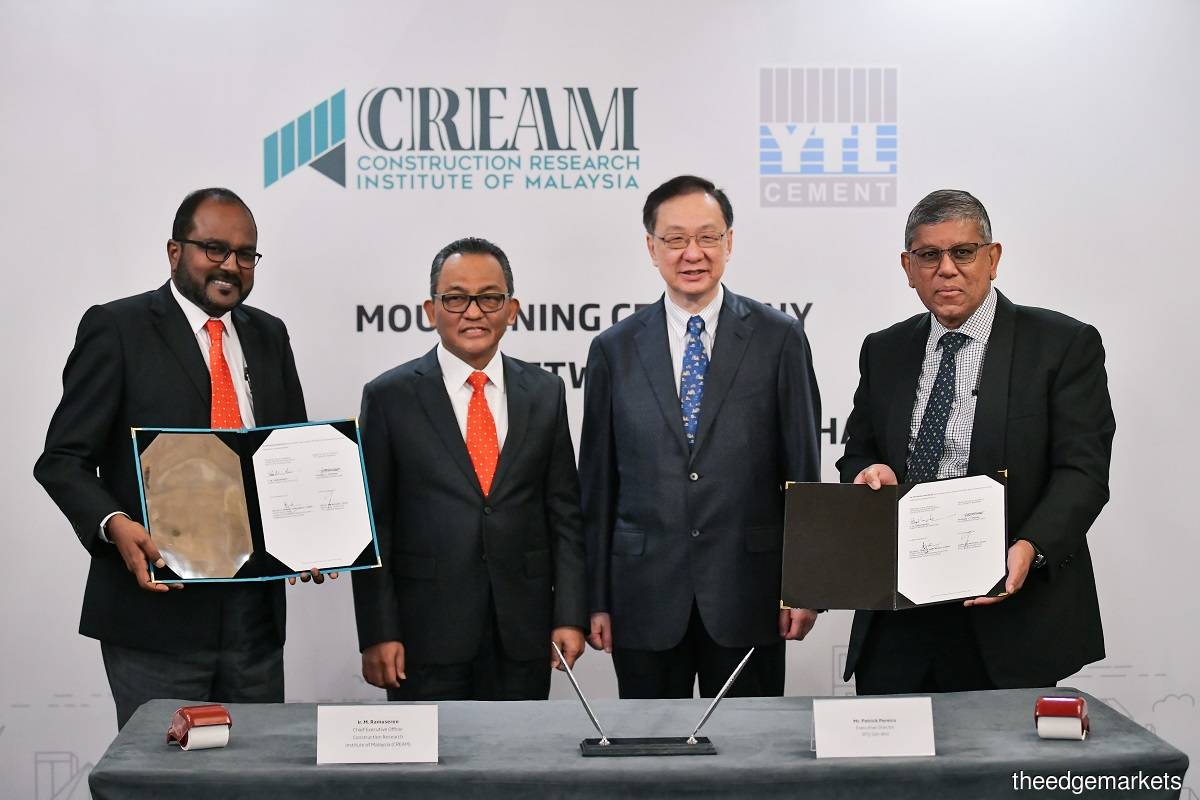
- CIDB’s Ahmad Asri said that the growing global population also demands consideration of how buildings are constructed, the materials used to create them, and the expected efficiency of the finished buildings.
KUALA LUMPUR (April 11): YTL Cement Bhd signed a memorandum of understanding (MOU) with the Construction Research Institute of Malaysia (CREAM) on Tuesday (April 11) to support the local industry’s transition to sustainable construction.
CREAM is the research and development arm of the Construction Industry Development Board (CIDB).
Through the MOU, YTL Cement will be supporting CIDB’s initiatives in developing the construction industry’s workforce, improving research and development efforts, and enhancing the understanding of sustainable construction practices among industry players.
The MOU, which will last for two years, was signed by YTL Cement Marketing Sdn Bhd executive director Patrick Pereira and CREAM’s chief executive officer M Ramuseren, while the witnesses were YTL Cement managing director Datuk Seri Michael Yeoh and CIDB chief executive officer of construction industry Datuk Ahmad Asri Abdul Hamid.
In his opening speech, YTL’s Yeoh said the requirements of the construction industry are getting more sophisticated and technically demanding. “With buildings and structures getting taller and more advanced, CIDB is now more relevant than ever before. There is an increasing need for a qualified workforce within the construction industry, and greater demand for innovation and bespoke solutions.
“Another area that is of growing importance is environment, social and governance (ESG). As Malaysia’s oldest and largest homegrown building materials group, we are actively promoting sustainability in our operations, offerings and activities. These are areas that we want to work with CIDB through this MOU,” Yeoh added.
Concurring with Yeoh, CIDB’s Ahmad Asri said that the growing global population also demands consideration of how buildings are constructed, the materials used to create them, and the expected efficiency of the finished buildings.
“As highlighted in the Twelfth Malaysia Plan, guided by the pillars of sustainability, Malaysia aspires to achieve net-zero greenhouse gas (GHG) emissions by as early as 2050. The construction industry plays a critical role in achieving this goal. Hence, CIDB is dedicated to building Malaysia’s sustainable future by developing a socially and environmentally responsible industry through MOUs like these,” Ahmad Asri shared.
The three key areas highlighted in the MOU are human resource development, research and development (R&D), and supporting the construction sector to transition to sustainable construction.
For human resource development, CIDB and YTL Cement will jointly design training programmes for youths and industry players. Ahmad Asri shared that the programme will primarily focus on managers and supervisors from construction-related organisations, as well as young graduates who are looking to upskill themselves.
The training programme will allow these groups to be certified as concrete technicians and develop training syllabuses for accreditation programmes of qualified personnel in operations.
For research and development efforts, YTL Cement is offering access to its laboratory and testing facilities. CREAM will work together with YTL Cement’s team of experts to conduct R&D on lower embodied carbon alternatives in materials and construction methods.
Other than that, CIDB and YTL Cement will also work together to increase awareness on embodied carbon produced by the construction sector by providing channels for discussions and knowledge transfer among industry practitioners and experts.
TOP PICKS BY EDGEPROP
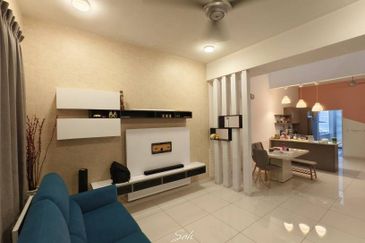
Parkfield Residences, Tropicana Heights
Kajang, Selangor
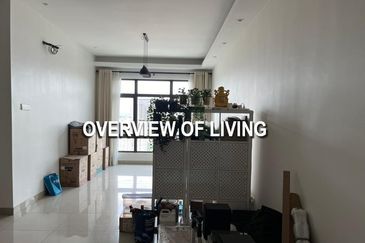
Pearl Suria
Jalan Klang Lama (Old Klang Road), Kuala Lumpur
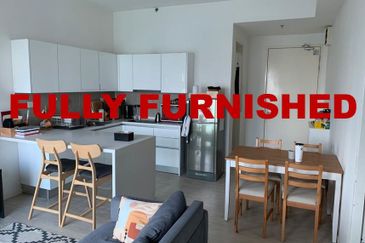
The Grand @ Kelana Damansara Suite
Kelana Jaya, Selangor

Taman Merlin, Samarahan
Kota Samarahan, Sarawak



